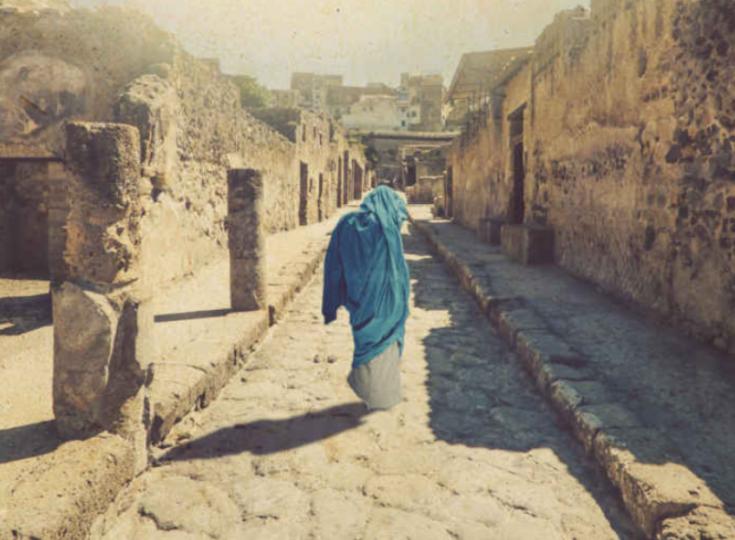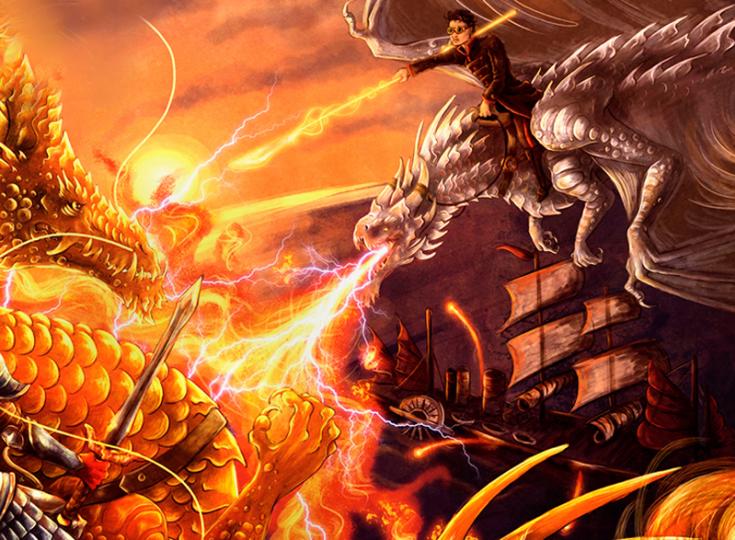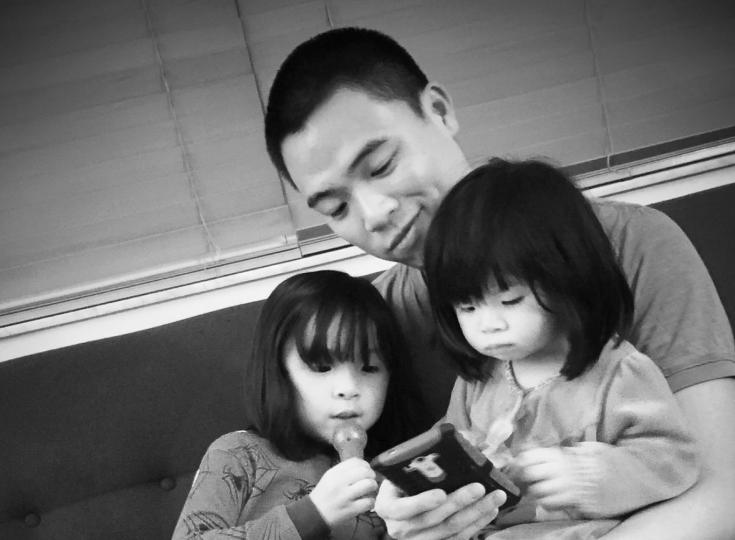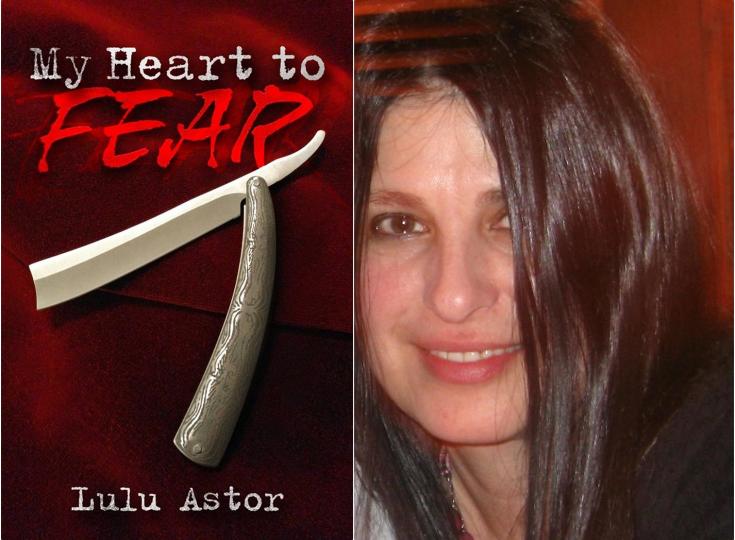John I. Rigoli & Diane Cummings - Telling the Stories of the Earliest Women in the Church

Diane Cummings has worked as a radio reporter and a TV news director. Deciding that truth was too much stranger than fiction, she set about applying her passion for writing and editing to the world of literature. Diane has edited or ghostwritten more than 50 titles - and now she wants her name on the cover.
John Ignatius Rigoli's experiences as both a cradle Catholic and former US Naval officer informed his world view in a rather unexpected manner, opening his eyes to the proposition that those who seek power are the last people who should hold it. John is an unabashed social justice advocate, outspoken liberal, and a patriot - and he sees no dichotomy in this. As our Authors of the Day, they tell us all about their book, The Mystery of Julia Episcopa
Please give us a short introduction to what The Mystery of Julia Episcopa is about.
John: The story of Julia Episcopa is that of a Roman noblewoman who became an early (and somewhat reluctant) convert to early Christianity – before the term Christianity had yet been coined. A chance meeting led her to become involved in the burgeoning movement, and her skills and her wealth led her to become a prominent leader. However, she, like many non-fictional women in the movement, was erased.
Diane: Two millennia later, a scrap of parchment is uncovered by our present-day protagonists – both classical archeologists, leading them to Julia and her legacy, and a cache of documents that challenge the age-old doctrines of the Roman Catholic Church. We've placed this in the context of the current, real-life struggles within today's Vatican and its current conservative v. 'liberal' factions and the fight over women's place within the church and within history.
What fascinates you about ancient Rome?
John: It's impossible not to be fascinated with ancient Rome. Romans ruled the world, as it was known then. They assimilated all the known knowledge from every nation they occupied; they took their systems of government, philosophy, education, and their surprisingly advanced knowledge of medicine from the Greeks. They advanced the knowledge of science and mathematics, shown in their engineering of cities and roadways and buildings... Rome still takes water from the aqueducts built more than 2000 years ago.
Diane: At the same time, it was a savage, brutal, military culture. The Romans ruled their subject states with a relatively light hand, but it was a hand, made of stone. Even so, the innovations created by the Romans are still considered modern today: indoor plumbing, flush toilets, sewage systems, municipal planning. After Rome fell, it took another thousand years before we started to rediscover technologies that were a part of everyday Roman life.
I also find the dramatic religious change from thousands of years of polytheism to the triumph of monotheism in a relatively short historical period to be fascinating.
Was there anything in particular, an incident or something you read, that made you want to tackle this?
John: As a cradle Catholic, I was always somewhat perplexed that women were not really allowed a role within the faith except as sisters. It made no sense to me, but I did not ponder it too deeply. Then, I attended a conference and met two elderly women, both with master’s degrees in theology. They shared their thoughts and insights with me, of being shut out of a church where they had been called, and of being openly criticized, rejected by the church for trying to take a more active role. The injustice of this moved me.
Diane: When John came to me with his idea about this book, I, as a non-Catholic, was an innocent regarding the mores of the church. However, I was fully aware of its rigid stance regarding ordination of women as priests. As he explained how “Yeshua’s” message became twisted through time—he never put restrictions on women’s involvement in church development—I began to “see” the book, and I became most enthusiastic. I really wanted to write it, and we began immediately.
Tell us more about Valentina and Erika. What makes them so special?
Diane: Valentina and Erika are very different women – however, both are highly educated, brilliant, and have become prominent scholars in a field that had (and remains) heavily male-dominated. Valentina, as an Italian woman, is culturally Catholic. Being raised in Italy is to grow under the influence of the church – even if one isn't particularly observant. She understands the stakes should she reveal what she has learned about Julia – not only the risk to herself, but to the church and to the society.
Erika is the more technical of the two – and as someone who was not born and raised in Italy, less concerned with the global ramifications of their discovery.
Though both characters have romantic interests, this isn't center to either of their lives. This was important to us – we wanted this book to be about women, not about women in relationship to the men in their lives.
John: Diane said it. I would add only that the passion of both of these women strikes me. They are driven to do the right thing even though they are risking, perhaps, their livelihood and, for Valentina, her good standing in the church.
How much research did this book require from you? What was the most interesting aspect of this research?
John: This book required an enormous amount of research... Starting with the hints Paul left behind in his letters, we needed to put together a convincing storyline as to what sorts of tasks the earliest church mothers were set to, and what would make Julia especially useful. We needed to study everything from the transit points and cities throughout the Empire, the time it takes to move across the Gulf of Napoli, what was left after Vesuvius erupted, and what sorts of diseases made people sick – and what was used to cure them.
Diane: Moreover, we needed to take a deep dive into modern technologies in archeology; for example, how burnt scrolls are now made readable through digital technologies, and which universities and laboratories have that equipment. And each bit of historical, theological, and technological information was fact-checked several times to make sure we were able to be as accurate as possible, even though this was a work of fiction.
John: The most interesting aspect was how slight the footprint was of the early Christians pre-Pauline, and even after. Much of what we think we know about them is merely tradition, without much evidence to back it up. We searched through every little bit of documentation we could find to flesh out this story.
Who is Julia Episcopa? What makes her tick?
Diane: At the beginning of our story, Julia is a slightly spoiled and high-spirited young woman of the nobility, getting ready for her wedding day. She has romantic expectations of her husband-to-be and the life she will live. But, as with many arranged marriages to men of power, this was not to be – and her husband is a particularly nasty piece of work.
Her life in this would be not much different from that of many – if not most – women of her class in that time. However, in Julia's loneliness and isolation, she does not turn to the vanities of that age. She seeks some deeper meaning and purpose to her life.
This book explores the topic of female leaders in the history of the Catholic church. Why did you find this important to write about?
John: To this day, Christianity is often used as a stick to beat and subjugate women. Religion is commonly used as a tool of subjugation – to take away the rights of others, and women in particular. However, St. Paul greets 13 different women by name, calling them fellow apostles. According to the bible, Jesus treated women as his sisters, as equals, and had them as his closet companions. Yet here we are, 2000 years later, and the Pope has just gotten around to calling a council to see if perhaps women can be deacons? Women are named as Deacons in the bible!
Currently – and you see this often in the popular press – there is an internecine war within the Catholic church as the current pope is cautiously striving to create a 21st-century dialogue and to open the doors to more equality. There are conservative forces within that have called him heretical for his teaching on justice, family, and the place of women in the church. Even if one is not a Catholic – even if one is agnostic or atheistic – what the Church in Rome does has an impact on global politics and on the rights of women.
Besides writing, what other secret skills do you have?
John: Having served as an officer in the Navy and managing several businesses along with raising four sons, l have developed managing leadership skills for mentoring and motivating others.
Is there an underlying message you wish to relay about basic human nature through your characters?
Diane: The ancients are not much different from men and women today. Some are driven by greed, jealousies, a lust for power, and those under them will strive for freedom, fairness, and justice. It's as if we must learn the same lessons, millennia after millennia.
Did you work out the entire plot of your book before you started to write?
John: We have a starting place, and a destination, but the rest is as if we’re going on a trip, and we’re open to all the unexpected encounters along the way. We do not know what will happen at each step of the journey.
When writing from these sorts of perspectives, did you feel you had to sidestep certain stereotypes?
John: Because we are dealing with a definitively Christian subject, we wanted to take care to make this book about the historical, not the religious experience of the people living this journey. We avoided preaching and teaching—this isn't a book about religion.
Diane: Moreover, we very much wanted to avoid the standard tropes of the 'bad' Romans and 'good' Christians. While both Jews and Christians were subject to harassment and persecutions within the Roman Empire, these were often local squabbles until the 2nd and 3rd centuries.
Do you have any interesting writing habits? What is an average writing day like for you?
Diane: I first want the news of the day when I get up. And a latte. I’m fairly fastidious and want my house in reasonable order by the time I step into my home office, so that nothing external clutters my mind. I start out by cleaning up anything from the day before, such as going over changes John might suggest. We may conference on “what next,” or I may be in the middle of a chapter and just continue. I write for 5-6 hours straight through and then call it quits.
I do not outline the story before writing, though I find it helpful sometimes to outline a chapter that John and I have talked over. I always read and edit on hard copy.
What are you working on right now?
We are currently working on revising the sequel to Julia “The Book of the Scribe” - which follows our protagonists after the fall-out of the revelation of Julia's secret and we are busy on the first draft of the third book in the Vatican Chronicles series “Silent Mistresses.”
Where can our readers discover more of your work or interact with you?
To find out more about Julia, you can find our research notes at http://vaticanchronicles.com. You can follow us on facebook@juliaepiscopa and join in what is often a lively conversation, and you can tweet to us @juliaepiscopa on Twitter.





